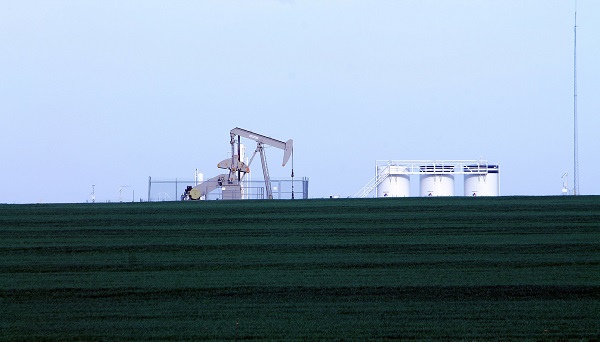Looking ahead to the possibility of earning a master’s in petroleum engineering – one of the highest-paying master’s degrees – in the future is a great idea, but there are other steps you must take along the way. Most importantly, you’re going to need a bachelor’s degree before you can get into graduate school. You don’t have to wait until your undergraduate studies are complete before you undertake a program in petroleum engineering. You can study petroleum engineering at the bachelor’s level.
IMAGE SOURCE: Pixabay, public domain
Bachelor’s Degrees in Petroleum Engineering
Perhaps because petroleum engineering is such a specialized area of study, prospective students often wonder if majoring in it as an undergraduate is even an option. It absolutely is. A bachelor’s degree is the level of education expected of petroleum engineers, according to the United States Bureau of Labor Statistics. This is also the most popular level of education in the field, with 72 percent of petroleum engineers reporting that a bachelor’s degree is their highest level of education, according to O*NET.
Not only can you earn a bachelor’s degree in petroleum engineering, but ABET (the Accreditation Board for Engineering and Technology) only recognizes bachelor’s degrees as of 2021. This doesn’t mean that the master’s degree programs you find in petroleum engineering are not legitimate or high-quality, though. While ABET does accredit master’s degree programs, most ABET-accredited programs are undergraduate programs.
Since engineering state licensing boards are typically only concerned with ABET accreditation of undergraduate programs, it isn’t unusual for even highly respected graduate engineering programs to skip the process of seeking ABET accreditation. In fact, ABET has historically limited institutions to accreditation at either the undergraduate or graduate degree level but not both, although the organization has since embraced dual-level accreditation. Further, applicants to master’s degree programs in petroleum engineering are usually expected to enter the program with an undergraduate engineering degree from an ABET-accredited program, so those students aren’t banking on accreditation at the master’s level.
What should you expect when you study petroleum engineering as an undergraduate? The curriculum of a bachelor’s in petroleum engineering degree program will likely include studies in reservoir engineering, geosystems engineering design and drilling and well completions. Through your studies, you should expect to learn about the economics and valuation of resources, the properties of petroleum fluids, the evaluation of rock formations and the design and analysis of production systems used in petroleum engineering. Studies in geostatistics, geomechanics, petrophysics and thermodynamics are common, as are explorations of engineering, energy and the environment more broadly.
Some petroleum engineering bachelor’s degree programs include opportunities for hands-on work in the field, such as internships and co-op programs with companies in the oil and gas industry. Real-world experience is important for engineers in general, but particularly so for petroleum engineers, according to the BLS.
Of course, petroleum engineering majors also complete the general education coursework required for a bachelor’s degree, as well as core coursework in engineering, mathematics and the sciences.
Undergraduate Options Beyond the Petroleum Engineering Major
Only 43 bachelor’s degree programs in petroleum engineering are currently ABET-accredited worldwide, 30 of which are in the United States, as of 2021. It’s not a given that the college you’re considering for your undergraduate degree offers this major. You could opt to search for an institution that does have an accredited undergraduate petroleum engineering program if choosing this major is really important to you. However, you might need to make sacrifices – like giving up a scholarship or going out of state and paying a significantly higher tuition rate – to do so.
Fortunately, majoring in petroleum engineering isn’t your only option for getting into this career. It’s not unusual for petroleum engineers to come to the field with a background in mechanical engineering, civil engineering or chemical engineering, according to the BLS. Petroleum engineering is generally considered to be an interdisciplinary or multidisciplinary branch of engineering, so these broader and more versatile engineering disciplines are still suitable preparation for this occupation, even if a specialized petroleum engineering program is preferable.
If you opt for a broader engineering major but still want to prepare to work in petroleum engineering, consider searching for an internship with a gas or oil company. A combination of broad technical engineering skills and specialized experience is a powerful combination.
Additional Resources
What Undergrad Degrees Are Best to Get If I Plan to Get an Advanced Degree in Petroleum Engineering?
Which Area of STEM Is Most Important to Be Strong in to Be Successful in Petroleum Engineering?
Will I Miss Out on Anything by Taking Online Classes for Petroleum Engineering?

